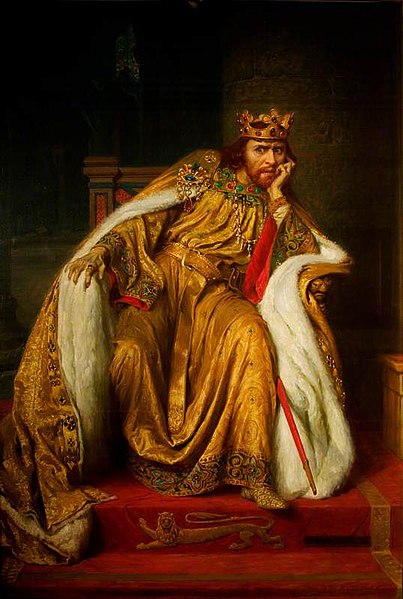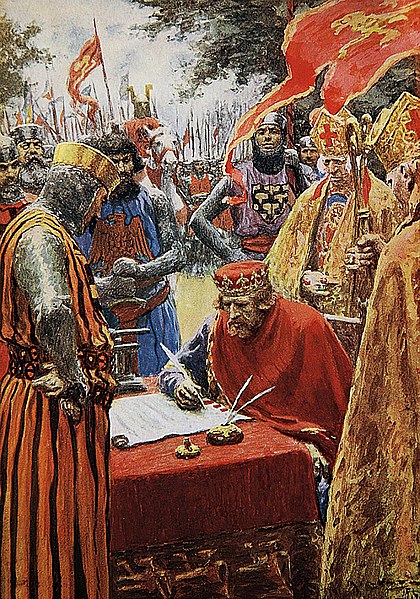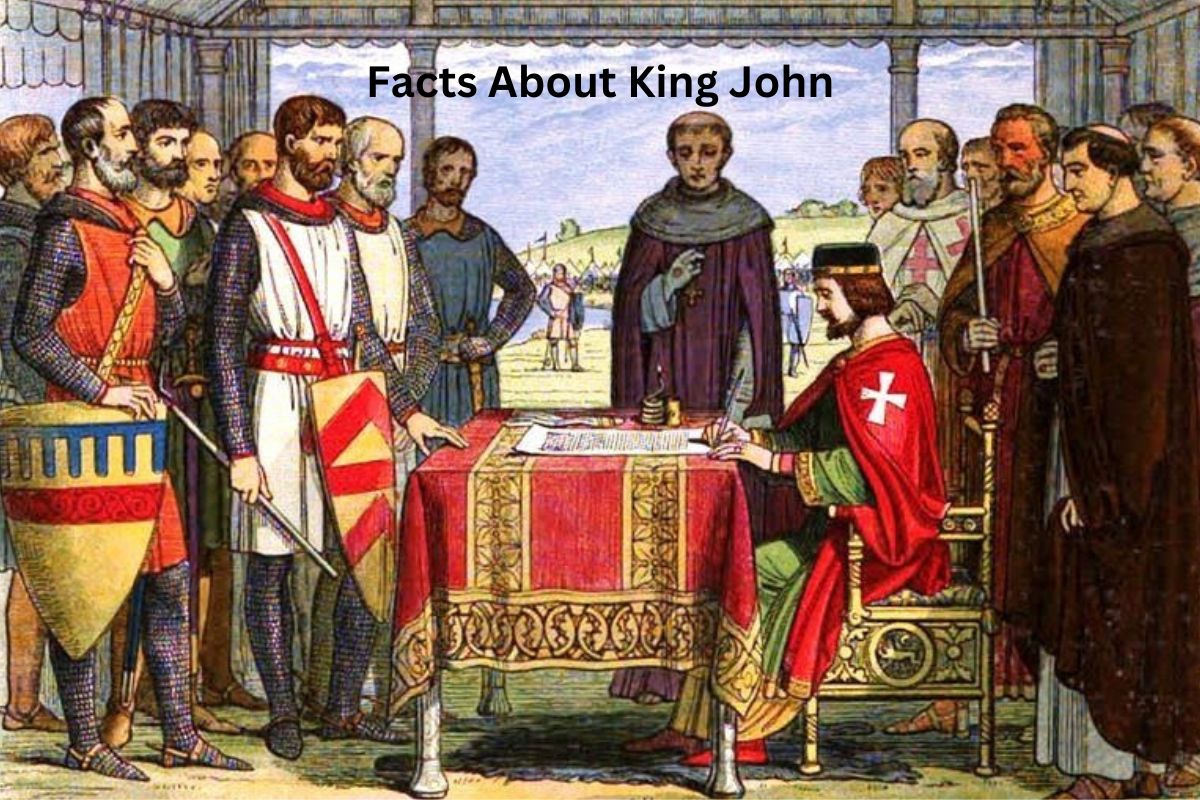King John, born in 1166, ruled England from 1199 to 1216. His reign was marked by conflicts, including the loss of French territories, heavy taxation, and a strained relationship with his barons.
However, he is most famous for being forced to sign the Magna Carta in 1215, a pivotal moment in English history that limited royal power and established legal rights.
Despite his troubled rule, King John’s legacy is primarily associated with the Magna Carta and its enduring impact on English governance and individual rights.
King John Facts
1. Born on December 24, 1166, as the youngest son of King Henry II and Eleanor of Aquitaine
King John, born on December 24, 1166, was the youngest son of King Henry II of England and Eleanor of Aquitaine.
Also Read: Facts About Richard the Lionheart
His birth into the influential Angevin dynasty meant that he was part of a family that held extensive lands and power across Western Europe, including England and parts of France.

2. Engaged in conflicts with his brother Richard the Lionheart
King John’s early life was marked by rivalry and power struggles with his older brother, Richard the Lionheart.
John’s attempt to seize the throne while Richard was away on the Third Crusade strained their relationship. After Richard’s return, he forgave John, but their relationship remained tumultuous.
3. Faced military failures, including the loss of territories in France
During John’s reign, he faced significant military challenges, particularly in his efforts to retain control of territories in France.
His campaigns were often marked by failure, and in 1204, he suffered a major setback when he lost Normandy to the French King Philip II.
This loss marked the end of Angevin rule on the continent and significantly weakened John’s hold on the Angevin Empire, which had once been a powerful domain.
These military failures strained his resources and contributed to discontent among his barons and subjects in England.
4. Forced to sign the Magna Carta in 1215, limiting royal power
Perhaps the most defining moment of King John’s reign was the forced signing of the Magna Carta in 1215.
Faced with a rebellion by discontented barons who were frustrated with his heavy taxation and perceived abuses of power, John was compelled to agree to the Magna Carta’s terms at Runnymede.
Also Read: Magna Carta Facts
This historic document limited the authority of the monarch, ensuring that even kings were subject to the law. It guaranteed various rights, including due process, protection against arbitrary imprisonment, and limits on taxation without representation.
The Magna Carta laid the foundation for constitutional and legal principles in England, making it a cornerstone of modern democracy and the rule of law.

5. Excommunicated by Pope Innocent III in 1209
King John’s disputes extended beyond his realm to the Church. In 1209, Pope Innocent III excommunicated him due to a disagreement over the appointment of the Archbishop of Canterbury.
This excommunication had significant political and religious implications, as it placed England under interdict, meaning that religious services and sacraments were suspended in the country.
John ultimately made concessions to the Church to have the excommunication lifted, demonstrating the influence of the Church on medieval European politics.
6. Faced rebellion from discontented barons, leading to the Magna Carta
Throughout John’s reign, his heavy taxation, arbitrary rule, and conflicts with his barons fueled discontent among the nobility.
The loss of key territories in France added to their frustrations. This discontent eventually led to open rebellion, with the barons seeking to constrain the king’s power and protect their own rights.
The culmination of this rebellion was the sealing of the Magna Carta, which aimed to ensure that the king governed within established legal constraints and respected the rights of his subjects.
This event marked a significant turning point in the relationship between the monarchy and the nobility in England, as it established the principle that the king was not above the law.
7. Lost Normandy to the French Crown in 1204
One of the most significant setbacks during King John’s reign was the loss of Normandy to the French Crown in 1204. This marked the end of Angevin rule on the European continent, a territory that had been under English control for centuries.
The loss of Normandy severely weakened John’s position and prestige as a monarch, as he struggled to regain these territories throughout his reign. It also had long-term consequences for English foreign policy, as the focus of English monarchs shifted more towards the British Isles.
8. Known for his volatile temperament and ruthless behavior
King John was known for his volatile temperament and ruthless behavior. He had a strained relationship with his family, including his mother, Eleanor of Aquitaine, who was a powerful figure in her own right.
John’s marriages were also tumultuous, and he is known to have had multiple wives. His personal life was marked by conflicts and disputes that added to the turbulence of his reign. His character and actions contributed to the negative perception of his rule among contemporaries and historians alike.
9. Died on October 18, 1216, succeeded by his son Henry III
King John died on October 18, 1216, during his reign. He was succeeded by his young son, who became King Henry III.
Henry III’s reign continued to grapple with the legacy of John’s troubled rule, but it also saw the eventual reestablishment of stability and a renewed focus on governance.
10. His legacy includes the Magna Carta and his depiction in Shakespeare’s play “King John”
King John’s reign and character are immortalized in William Shakespeare’s play “King John.” In this dramatic work, Shakespeare presents a complex and often conflicted ruler.
The play explores the political struggles, betrayals, and conflicts that marked John’s reign, portraying him as a flawed but multi-dimensional character.
While the play is a work of historical fiction, it contributed to shaping the public perception of King John and his era, adding a layer of cultural significance to his historical legacy.
